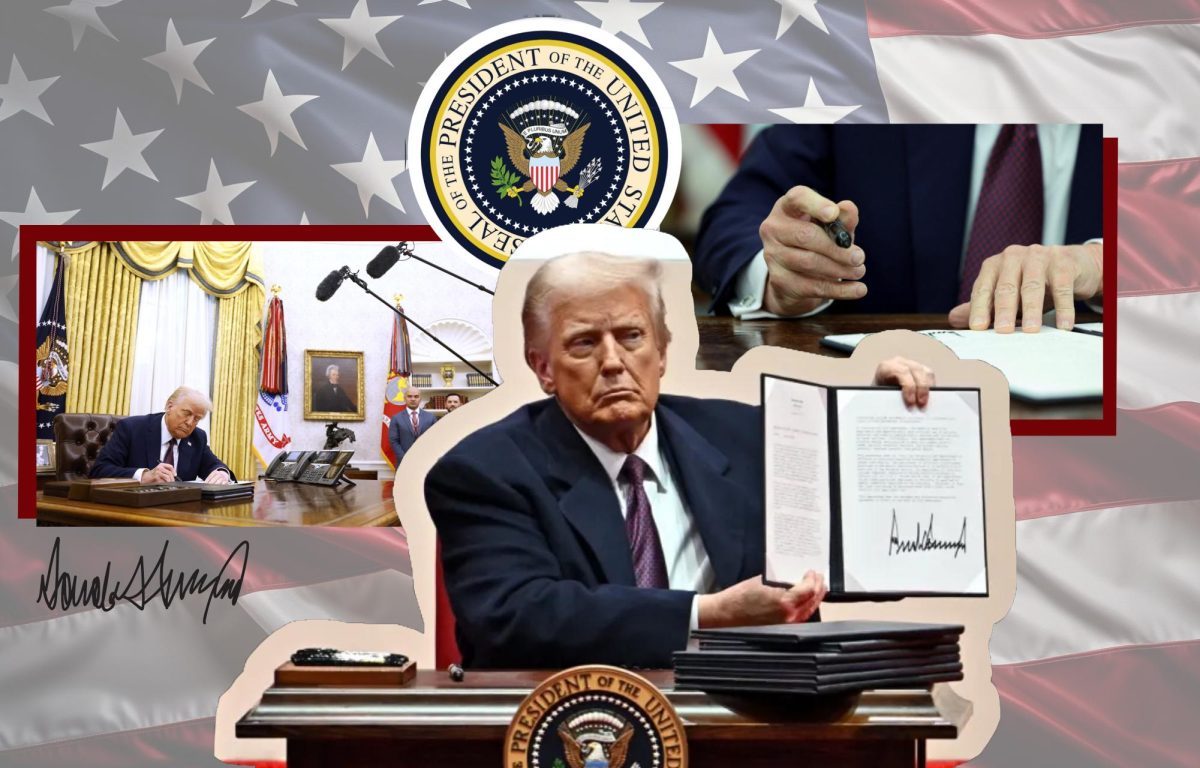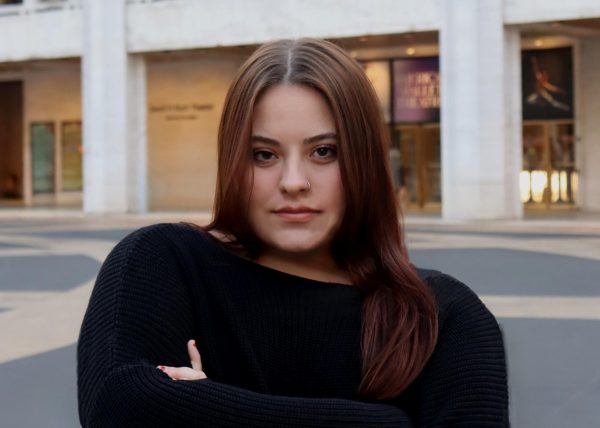A wave of executive orders and decisions is the standard in the first weeks of a presidency. For President Donald Trump, some of these executive orders are projected to have serious repercussions on American university students, specifically in marginalized communities.
Within hours of being inaugurated, Trump signed 26 executive orders for issues addressed in his campaign, ranging from foreign aid to birthright citizenship. This was the most first-day executive orders signed by a U.S. president in recent years. He also backed the U.S. out of various global organizations and accords, such as the World Health Organization and the Paris Climate Agreement. Many of these orders have sparked lawsuits and controversy, with some being struck down by federal judges shortly after being signed.
In Trump’s inaugural address, he declared a national emergency at the U.S. southern border, reinforced his promises of mass deportations and signed an executive order eliminating birthright citizenship. An executive order titled “Protecting the Meaning and Value of American Citizenship” addressed his platform in writing.
Trump authorized a decision that allows U.S. Immigration and Customs Enforcement (ICE) to arrest undocumented immigrants at locations that were previously safe from enforcement. Although ICE’s website has a notification that requires revisions after these changes, some of its listed “protected areas” included, but were not limited to, schools, medical or healthcare facilities, places of worship and more.
Within hours of being inaugurated, Trump signed 26 executive orders for issues addressed in his campaign, ranging from foreign aid to birthright citizenship.
University President Tania Tetlow sent an email on Jan. 28 regarding an immigration stance backed by the university’s Jesuit values.
“In this Catholic university founded for immigrants, I can remind us that one of the strongest exhortations of our faith (and of Judaism, Islam, Hinduism, Buddhism, and other religions) is to ‘welcome the stranger.’ It is not enough to love our own, those who are familiar. We are commanded to expand our circle of welcome, to see every human being as family,” she wrote.
Tetlow also wrote that the university “will offer as much pragmatic support as possible” by updating its page on resources for undocumented students. This page links university and legal resources, including, but not limited to, the Office of Government Relations, DACA application information and the National Immigrant Justice Center. She also wrote that the Office of International Services will monitor policy changes to keep international students updated and informed.
Fordham Public Safety sent an email on Jan. 30 instructing students and faculty to familiarize themselves with the university’s guidelines for interacting with law enforcement agencies like ICE. These guidelines, which present a three-step response if approached by an officer, are meant to legally protect Fordham community members.
“University procedures are grounded in the Jesuit tradition of being people for others. We hold to the Ignatian principle of care for the whole person and respect the dignity of every individual, including their right to feel safe wherever they may be on campus,” the email wrote.
Trump and his allies have been outspoken about their distaste for Diversity, Equity and Inclusion (DEI) programs and initiatives nationwide. In the executive order titled “Ending Radical and Wasteful Government DEI Programs and Preferencing,” the White House referred to DEI efforts as discriminatory.
“The Biden Administration forced illegal and immoral discrimination programs, going by the name ‘diversity, equity, and inclusion’ (DEI), into virtually all aspects of the Federal Government, in areas ranging from airline safety to the military,” the White House wrote in the executive order.
“Fordham will let the campus community know what plans the University is making, or what actions it is contemplating, as soon as it is possible to do so with some degree of certainty.” Bob Howe, Associate Vice President for Media and Public Relations
Some organizations and institutions outside federal agencies have since dissolved their DEI programs, including the University of Michigan, which has removed diversity statements from their hiring processes.
Bob Howe, assistant vice president for communications and special advisor to the president, said Fordham will be transparent with any actions in response to the executive orders.
“Fordham will let the campus community know what plans the University is making, or what actions it is contemplating, as soon as it is possible to do so with some degree of certainty,” Howe wrote.
No changes have been made to Fordham’s policies and procedures at the time of publication.


